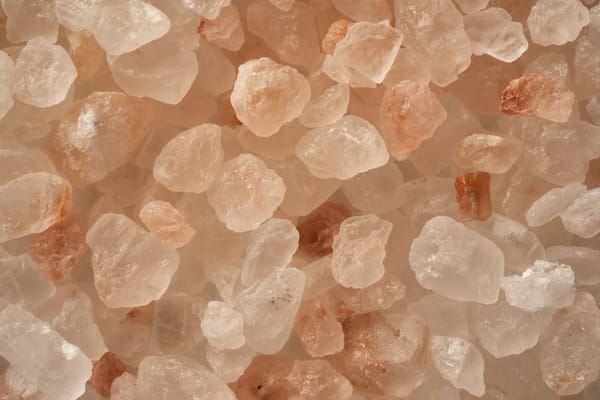
Goal of this digest is to extract the most interesting information from the paper in question (see reference section at the bottom) and put it into laymen-friendly terms. To make the extracted information easily traceable, I'll follow the segmentation of the original review article in this digest.
'1 Introduction'
About one in nine men and one in twelve women are estimated die to cancer. 90% of these deaths are thought to be due to metastases (secondary cancer colonies, where cancer cells travelled in the blood from the initial tumour to the site of the new colony).
There are primarily two categories of risk-factors to cancer development: endogenous (internally made) and exogenous (externally made). The former we have no control of, the latter we can influence through sensible lifestyle and dietary choices.
The article then has something, which seems self-contradicting. On one hand high-fat diets have epidemiologically (population survey) been linked to cancer progression in some diseases, but ketogenic diets (diets, which rely exclusively on fat for the provision of biochemical energy) have been shown to up-regulate genes, which suppress cancer development. This would seem to me to be due to the fact, that the study, upon which the claim of high-fat diets being bad is based, discussed the obesity-inducing modern standard Western diet, which is indeed high-fat but also high-carbohydrate, which means, that it doesn't induce ketosis (fat-burning). Given the fact that Tang et al. tell us, that high-sugar diets are associated with cancer development, it should be safe to say, that fat itself isn't bad (since it induces ketosis and is the main constituent of ketogenic diets, which are cancer-protective), but that sugar is, whether alone or in combination with fat.
Tang et al. then move on to discuss the prior contradicting evidence for and against high-salt diets being promotive or inhibitive of cancer. It seems, that in some cases a high-salt environment has been found to be promotive of cancer cell survival, and that in other cases a high-salt environment has been found to be promotive of anti-cancer immune cell activity.
'2 HSD is a double sword in tumor treatment strategies'
'2.1 HSD promote cancer process'
In the modern era, connections between diet and cancer have become increasingly researched. The claim of high-salt diets (HSD above) being a double-edged sword (double sword above) is largely based on prior studies in mice and epidemiological findings, which associate high-salt diets with higher cancer rates and/or growth. Epidemiology has the enormous issue, that's sadly often completely ignored in pop-science or other 'scientific' communication to the broad public. This issue is, that epidemiological studies can't eliminate confounding factors. For example, high salt intake is positively associated with oesophageal and gastrointestinal cancer, but it may just as well be associated with intake of hotter food or higher amounts of prolamins and lectins, both of which can reasonably be hypothesised to respectively promote development of oesophageal and gastrointestinal cancer through cellular damage. It's thus difficult to separate high salt intake from other behaviours found in people who tend to eat a lot of salt.
We publish new articles, whenever we've synthesised new findings to a usable degree. You can subscribe to receive articles for free.
In mouse models of cancer and cancer-associated immune cells, high-salt diets have been found to support the progression, metastasis, and immune evasion of certain cancer types in certain contexts. In these mouse models, high-salt diets seem to be imitated by feeding the mice salt water, with differing concentrations of salt. In one study these salt concentrations ranged from 0.9% to 8%, which is basically like dissolving 9 g to 80 g of salt in a litre of water. If you were ever to dissolve that much salt in water, I can almost guarantee, that you wouldn't drink that water, because it's just simply too salty. These findings seem to thus be predicated on a unrealistically high RELATIVE salt content in comparison with water ingestion, not purely the ingestion of salt. A balanced ingestion of salt and water (i.e. in line with feelings of thirst and salt hunger, whilst eating real, little processed foods) would thus seem to me to be unobjectionable.
High salt concentration in the stomach can cause increased toxin production by one of the common gastric bacteria, which is itself then associated with gastric cancer. Again, we see the trend of high salt CONCENTRATION hinting at the fact, that salt isn't the issue, but a disrupted salt-balance, which in healthy individuals can easily be circumnavigated by just eating and drinking in accordance with thirst and salt hunger.
'2.2 Potential mechanisms of HSD in antitumor response'
'2.2.1 Tumor microenvironment'
The interactions between cancer cells, cancer-associated fibroblasts, the extracellular matrix, surrounding tissue, blood vessels, immune cells, and a plethora of bioactive molecules are centrally important to the development, progression, metastasis, and therapeutic response of cancer. Since lifestyle can have enormous impact on all of these associated functions, it's little surprising to me, that lifestyle can have an impact on cancer survival. Furthermore, cancer cells themselves can influence their immediate environment through the excretion of various molecules, which can lead to the reprogramming of surrounding cells to make them 'slaves' of the cancer tumour.
High levels of macrophage (a type of innate immune cell) invasion into tumours is associated with poorer patient outcomes. This is something we've discussed in the Mosaic Method Guide and in prior articles under the aspect of the acidification of the tumour microenvironment and is a broader trend with tumour-associated immune cells.
Hypertonic conditions (too much salt) have also been shown to have pro-inflammatory effects on macrophage populations. There are two types of macrophages: M1, which is pro-inflammatory, and M2, which is immune-suppressive. The increased production of reactive oxygen species (a type of metabolically produced toxin, which is normally neutralised by the so-called glutathione, which is itself regenerated in the mitochondria and depleted by carbohydrate metabolism) increase M1 macrophage activity and it suppresses the function of M2 macrophages and thus improves immune activity of macrophage populations. As tumour-associated macrophages are largely M2 type, this seems to indicate, that salt can in this way improve patient outcomes with regard to tumour-associated macrophage activity.
Evidence for natural killer cells (another type of innate immune cell) is ambiguous and seems to depend on the specific disease. Again, the evidence here, as with everything prior, comes in the form of mice models. In some contexts, 'high-salt diets' seem to suppress natural killer cell function, and in others, they seem to improve their function. More research is needed to make any claims.
Evidence for dendritic cells (the type of innate immune cell, which is pivotal to the activation of the much more sophisticated adaptive immune system) is thus far less ambiguous. A hypertonic environment of mouse dendritic cells has been shown to activate dendritic cells and stimulate their pro-inflammatory signalling.
The review then moves on to T-cells. T-cells are a type of adaptive immune cell, which are 'trained' in the lymph nodes with the help of dendritic cells to recognise very specific molecular patterns, which are associated with defective or infected cells, but not associated with healthy cells. This also means, that T-cells are highly important in monitoring and killing cancer cells. In prior posts and the Mosaic Method Guide we've discussed how acidity can inhibit anti-cancer activity of T-cells, but there are also other factors of the tumour microenvironment, which hampers with anti-cancer T-cell function.
There are primarily two T-cell populations. Cytotoxic T-cells, whose specialisation is the killing of defective or infected cells, and regulatory T-cells, whose specialisation is regulating the activity of cytotoxic T-cells and other immune functions and making sure, there's no attack of healthy cells.
Interestingly, addition of salt to cell culture of T-cells increased the amount of cytotoxic T-cells and their cytotoxic signalling. High-salt diets have also been shown to improve cytotoxic capacity of T-cell and thus inhibiting tumour growth. Hypertonic environments also improve metabolic adaptivity, vitality, and memory development of T-cells.
Furthermore, there's a class of immune cells, known as myeloid-derived suppressor cells, which occur primarily in two forms. Their anti-cancer effects are thought to be improved in tumour tissue with higher salt content, and their anti-cancer effects have been shown to be improved by high-salt diets in mouse models.
More research is needed to understand the tangled web of positive effects and unwanted side effects of high-salt diets.
We don't take sponsoring or display advertisements in order to keep us free from conflicts of interest. If you've found this valuable, you can help us by supporting our fight against cancer financially.
'2.2.2 Gut microbiome'
The gut microbiome has in recent years been increasingly researched for its role in and interaction with various diseases. Diseases like inflammatory bowel disease, coronary atherosclerosis, diabetes, and non-alcoholic fatty liver disease have been ASSOCIATED with changes in the gut microbiome. As the microbiome is influenced by diet just as much as our body, it's very difficult to disentangle the effects of microbiome changes from dietary changes and we come to a chicken-and-egg problem (although technically speaking the chicken-and-egg question is easy to answer, for eggs exist far longer than chickens in terrestrial biology).
The authors list a bunch of effects of high-salt diets on the microbiota of the gut. Primarily, these effect involve changes in relative abundance of various strains of microbiota and changes in their respective metabolisms.
In summary, there's a complex interplay between changes in microbiome composition and metabolism, which include anti-cancer and pro-cancer effects. I thus find it irresponsible to make any proclamation here, as the authors themselves are also very hypothetical in their analysis of the gut microbiome and the effect of a high-salt diet on it and it's interaction with cancer. More research is needed.
'2.2.3 Sodium ion channel'
The authors write a great deal about various sodium ion channel proteins and transporters and how they are used in healthy and cancerous cells. This is all very technical, so if you're interested, I recommend you read the paper fully. Preliminary studies with sodium ion channel blockers have shown some promise in inhibiting cancer growth. As sodium ions are widely used in cell signalling, this isn't necessarily surprising. The authors make no claims about a high-salt diet with respect to sodium ion channels and transporters and cancer.
They highlight the double-edged nature of high-salt diets on the development and progression of cancer and how these diets affect inflammation, immune activity, cancer sell signalling, gut microbiome, hormonal balance, and various other changes.
'3 Discussion'
In this part, the authors primarily summarise the above and highlight the potential avenues of pharmaceutical attack against cancer one can thus look into. They make some speculation as to into which direction research could go hence and highlight the double-edged role of salt and high-salt diets in cancer and the disease and context–specific ways, in which they interact.
Closing Remarks
I think, it's obvious from the above research digest, that high-salt diets as used in research (0.9% to 4% saline solutions) are unrealistic for human consumption, especially in food without flavour enhancers, which potentially mask the taste of salt, thus leading to overly high salt intake. Furthermore, humans – just like other animals as well – have an intrinsic psychological mechanism to maintain balanced salt and water intake, which are commonly known as thirst and salt hunger.
If you then eat real foods, like meats, eggs, dairy, leafy vegetables, and even the suboptimal fruits, nuts, legumes, and grains, you probably will never run into an issue of salt imbalance as induced in the mouse models in question, if only your follow your sensations of thirst and salt hunger. Very few people tend to drink sea water, as the mice were partially subjected to (with respect to saline concentrations).
I hope this has been enlightening and interesting to you.
God bless,
Merlin.
References
Tang, S., Xu, J., Wan, P., Jin, S., Zhang, Y., Xun, L., Wang, J., Luo, M., Chen, W., Zuo, Z., et al. (2025). Recent advances in the role of high-salt diet in anti- and pro-cancer progression. Frontiers in Immunology Volume 16 - 2025. 10.3389/fimmu.2025.1542157.









